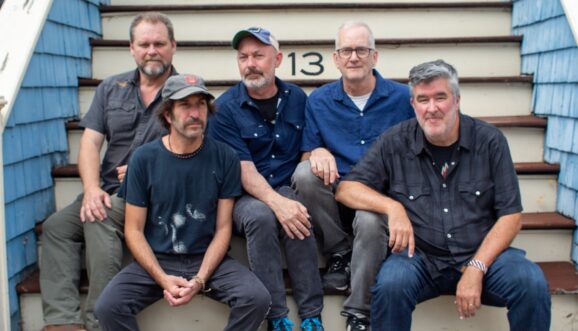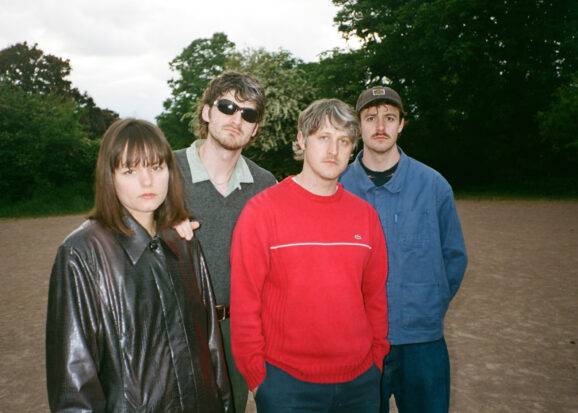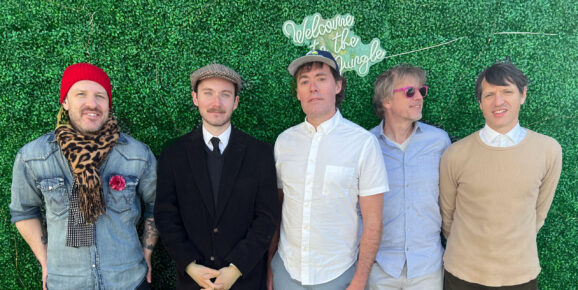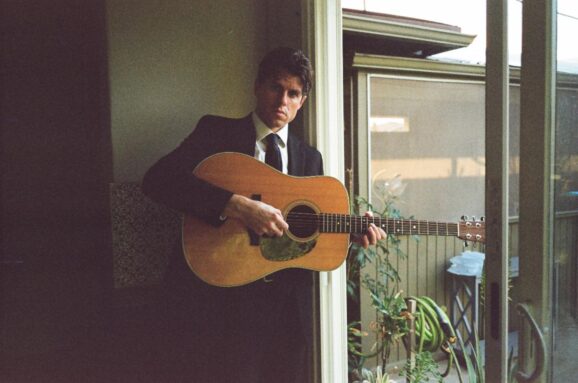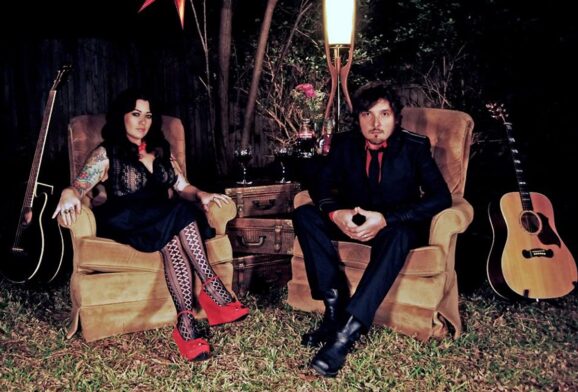Musically, we not only live in an age of ‘outsiders’ but what was once taboo, is now celebrated. Due to the efforts of Brandi Carlisle, Allison Russell, Brandy Clark, the Rainbow Coalition, and others, we’ve seen these ‘outsiders’ and survivors on the stage of the Newport Folk Festival, The Americana Fest, and just a few weeks ago on music’s biggest stage, The Grammys. One could arguably say they’ve rescued ‘outsiders’ from the past too in Joni Mitchell and Tracy Chapman. It’s as if Alynda Segarra prophesized such simply with the band name Hurray for the Riff Raff and this album title which is more than apropos, The Past Is Still Alive.
Segarra’s story is the ultimate runaway made good, sitting now on a major label, no less. Until now their story may have been a bit abstract, but it’s all revealed down to the grimiest of details on this effort. From the Bronx to New Orleans to California and countless places in between, it’s as if they are from a prior era, jumping trains, forming hobo bands, and living hand to mouth. There is no need for a lengthy biography here, the tales are found in these songs. “Alibi’ is the voice of the survivor urging their childhood friends to embrace living, rather than the dark side. “Buffalo” uses America’s iconic but practically extinct species, as a metaphor as to whether a new love can survive in this fractious society. “Hawkmoon” reveals the tale of the first trans women and the beatings they took in New Orleans, seeing herself as Miss Jonathan, upending norms and rallying to those who do the same.
Yet, the two focal tracks are “Colossus of Roads” and “Snake Plant.” The former was penned urgently after the Club Q shooting in Colorado and stands as perhaps the definitive homage to the survivors and dispossessed. Segarra is seeking some kind of sanctuary in these lyrics, “I know that it’s dangerous/But I wanna see you undress/Wrap you up in the bomb shelter/Of my feather bed.” Later they long for the days of San Francisco’s famous gay district, The Castro, circa 1985. They go as far as to suggest dissolving this current version of the United States. “Snake Plant” toasts survivorship through nostalgia as it recalls childhood memories, paying off such scenes as making love on top of a garbage dump, peeing in the bushes while waiting for a train, and shoplifting when needing something to eat with this huge anthemic rallying cry in the last verse – “I was young when I left home/I never stopped running/Used to think I was alone/But nothing can stop me now/Nothing can stop me now.”
If the album ended here at the halfway point, we’d have a manifesto. Yet, there’s more. The album title takes its name from a verse in “Vetiver” where Segarra finds equal substance in the rocks and stones as they do in books and poems. In “Hourglass” they are trying to reconcile making it big with that same kid that once ate out of the garbage, while in “Dynamo” they hail the idea of a modern bandit. Yet, there are moments of gloom too as when they duet with Conor Oberst in the heartbreak of “The World Is Dangerous.” This toast to survivorship comes to a head in the slow waltzing closer “Ogalla,” with its imagery of desolate Nebraska highways, escaping the cops, electrical fencing burns, and summing it all up by embracing the ugly past to salute the joy of not only being alive, but triumphantly thriving.
The album was recorded just a month after their father passed. So, the grief-stricken Segarra, as with previous efforts, worked with producer Brad Cook (bass guitar, vibraphone) and touring drummer Van Westerlund. Yet the remaining bandmates were new and contributed mightily – guitarist Meg Duffy, fiddler Libby Rodenbough, saxophonist Matt Douglas, and multi-instrumentalist Phil Cook. Harmonies are from SG Goodman and Anjimile, with stellar pedal steel from Mike Mogis on “Buffalo.”
This album came with impossible expectations and yet by almost any measure exceeded them. Clearly, this is the crowning jewel of Hurray for the Riff Raff’s catalog, and surely their most honest, cathartic songwriting.

